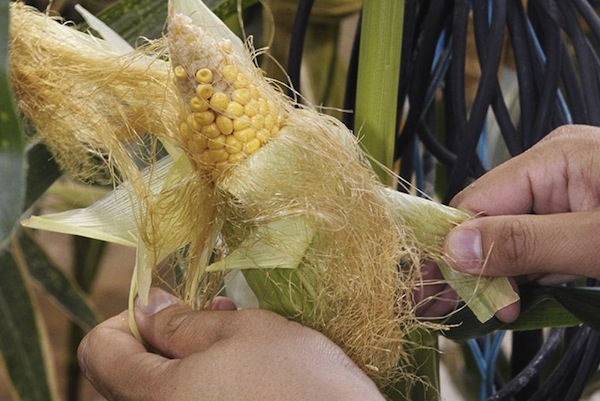Emails reveal that experts get paid to promote—or condemn—the use of genetically modified crops.
Scientists and industry professionals are often called in to offer their expertise on various causes and products. And while practically all specialists can agree on some topics—such as climate change or the efficacy of a brand of toothpaste—there’s no clear consensus about the safety of GMO foods, which have been genetically altered to contain more nutrients or resist diseases.
Big Ag and organic companies alike know that an expert seal of approval can help put consumers at ease—or make them all the more wary. That’s why companies from both sides of the aisle are enlisting third-party experts to speak on their behalf, according to public emails between academics and food companies obtained by The New York Times.
These professors and scientists aren’t exactly on the company payroll, but they receive research funding, and they travel all over the country to speak at workshops, science centers, and lobbying events, either championing GMOs or demanding labels.
Public opinion impacts the bottom line. Less than 40 percent of the general public thinks GMO foods are generally safe to eat, according to a January survey from the Pew Research Center. More and more restaurant chains and brands are jumping on the GMO-free bandwagon to appeal to customers. Transparency is being demanded by celebrities including Goop’s Gwyneth Paltrow, Buffy the Vampire Slayer’s Sarah Michelle Gellar, and Entourage’s Constance Zimmer.
Genetically modified crops are designed to contain more nutrients and are resistant to herbicides. Major producers such as Monsanto insist eating foods that were grown using herbicides containing glyphosate are safe, while organic producers say those chemicals are not safe to consume.
The Times notes that none of the emails indicated any wrongdoing or phony research but that academics have left their names on articles or used answers entirely scripted by the biotech companies.
Kevin Folta, chairman of the horticultural sciences department at the University of Florida, receives funding from Monsanto for “biotechnology outreach” and used a couple of scripted answers himself from time to time, but he maintains the company never paid him for his opinion.
“Nobody tells me what to say, and nobody tells me what to think,” Folta told the Times. “Every point I make is based on evidence.”
Of course, these companies employ their own scientists who are knowledgeable about the food they produce, but scientific communities have long held that such expertise holds more weight when it comes from an unpaid source.
“They could conduct those studies on their own and put this information on their website. But nobody would believe them,” Charles M. Benbrook told the Times. He worked at Washington State University and received funding from companies such as Organic Valley and Whole Foods.
Both Benbrook and Folta acknowledged that their own industry-backed research could appear just as suspicious as the companies releasing the information themselves.
Source: TakePart.com
Photo: Tom Gannam/Reuters
